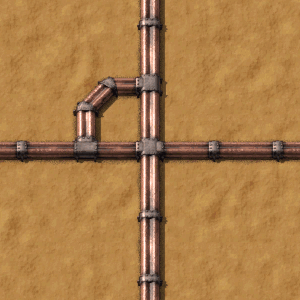Heat pipe: Difference between revisions
Jump to navigation
Jump to search
removed note about harming the player - while you have good intentions, sadly mentioning that something *doesnt* happen often means that people only recall it being mentioned, meaning that will assume that it *does* happen. |
m →History: add to history |
||
| Line 9: | Line 9: | ||
== History == | == History == | ||
{{History|0.17.67| | |||
* Heat pipes (also in reactors and heat exchangers) glow with high temperatures.}} | |||
{{History|0.15.11| | {{History|0.15.11| | ||
* Changed heat transfer mechanics, prior to this heat would flow better following the order of heat pipe placement}} | * Changed heat transfer mechanics, prior to this heat would flow better following the order of heat pipe placement}} | ||
Revision as of 23:47, 13 September 2019
| Heat pipe |
- Base game
- Space Age mod
Object description
The heat pipe can transport heat over longer distances and connect devices which produce and use heat. Currently this is limited to heat exchangers and nuclear reactors.
Heat pipes have a heat capacity of 1 MJ/°C. Thus, they can theoretically buffer 500 MJ of heat energy across their working range of 500°C to 1000°C, making them a space-efficient energy store. However, because temperature needs a drop of greater than 1 degree before it will "flow," you can't raise them all the way to 1000°C or drain them all the way to 500°C, so the practical energy capacity will depend on the layout.
As heat pipes rise in temperature, they will give off a very low-distance glow.
History
- 0.17.67:
- Heat pipes (also in reactors and heat exchangers) glow with high temperatures.
- 0.15.11:
- Changed heat transfer mechanics, prior to this heat would flow better following the order of heat pipe placement
- 0.15.0:
- Introduced
See also
